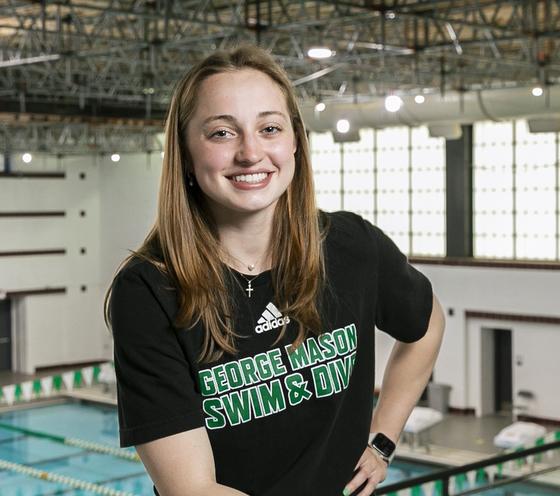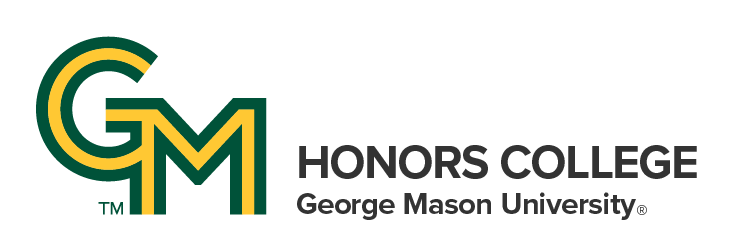Ali Tyler is all about television crime shows. They are, she said, her go-to form of entertainment.

At the same time, she is well aware they aren’t to be taken seriously.
Tyler is a junior forensic science major at George Mason University, and, as she said of Hollywood’s fast-track crime solving, “It’s not at all how it happens in real life. It’s a three-month process versus a two-second process.”
Tyler, from Cheshire, Connecticut, picked Mason because of its well-regarded Forensic Science Program and proximity to Washington, D.C., a choice that put her on her preferred career path and also allowed her to flourish as one of the Atlantic 10’s best all-around swimmers.
Tyler is a three-time conference champion in the 100-yard backstroke, a three-time champion in the 50 freestyle, and a two-time champion in the 200 backstroke. At this year’s conference championship meet, Tyler set a conference meet record of 48.84 seconds in the 100 freestyle to go along with her overall conference record of 22.29 seconds in the 50 freestyle, set in the 2021-22 season. That’s nine individual events entered, nine gold medals.
She also has been part of four relay teams that won gold, three of which set conference records, and is a member of Mason's Honors College.
“It’s been awesome to watch,” said Jamie Greenwood, interim coach of Mason’s swimming and diving team. “She’s elite in our conference, not to mention leading while staying humble. She is the athlete that every coach wants to work with.”
“I’m very glad I made the decision I did,” Tyler said of attending Mason. “I’m very satisfied with how I performed athletically. And I’m so glad I chose the forensics [program] here. The professors and everyone are fantastic.”
Still, it’s not the easiest road.
It means 5:30 a.m. wake-ups during the competitive season to get to the first of two-a-day workouts. It means working around class schedules, which Tyler said caused her on several occasions to miss practices and swim on her own to make up the time.
It means working with faculty who Tyler said have been understanding of the demands on her time and flexible when it comes to assignment deadlines.
The payoff has been both athletic and academic, as Tyler in her first two years at Mason made the Atlantic 10 Commissioner’s Honor Roll, which acknowledges student-athletes with at least a 3.0 grade-point average.
“What is amazing about her is her ability to maintain such high grades along with a rigorous aquatic training schedule,” said Steven Burmeister, an associate professor in the Forensic Science Program. “This balance demonstrates great discipline and maturity.”
Burmeister should know. He worked with Tyler last summer on a project that revealed LiDAR sensors that can be used to acquire digital crime scene data were most effective at a height of 60 feet.
“Without question, Ali has a bright future ahead of her,” Burmeister said, “and I am sure many accomplishments yet to come.”
Tyler said she is on track to graduate in Spring 2025. And because she has only five classes left for her undergraduate degree, she likely will begin an accelerated masters, also in forensic science.
From there, she said, she could pursue a career in toxicology or with a law enforcement agency.
It also makes sense that a field of study based on investigation would appeal to someone who likes puzzles.
Tyler said she loves brain teasers, disentanglement puzzles, and jigsaw puzzles. In fact, she said she just started a jigsaw puzzle with cherry blossoms.
She also appreciates the way Mason has made her feel at home, in and out of the pool.
“I like how the school is so connected, very community-based,” Tyler said. “But so many people come here from other places. I got a mix of small school and big school all in one.”
Related News
- October 23, 2025
- June 2, 2025
- February 25, 2025
- March 21, 2024
